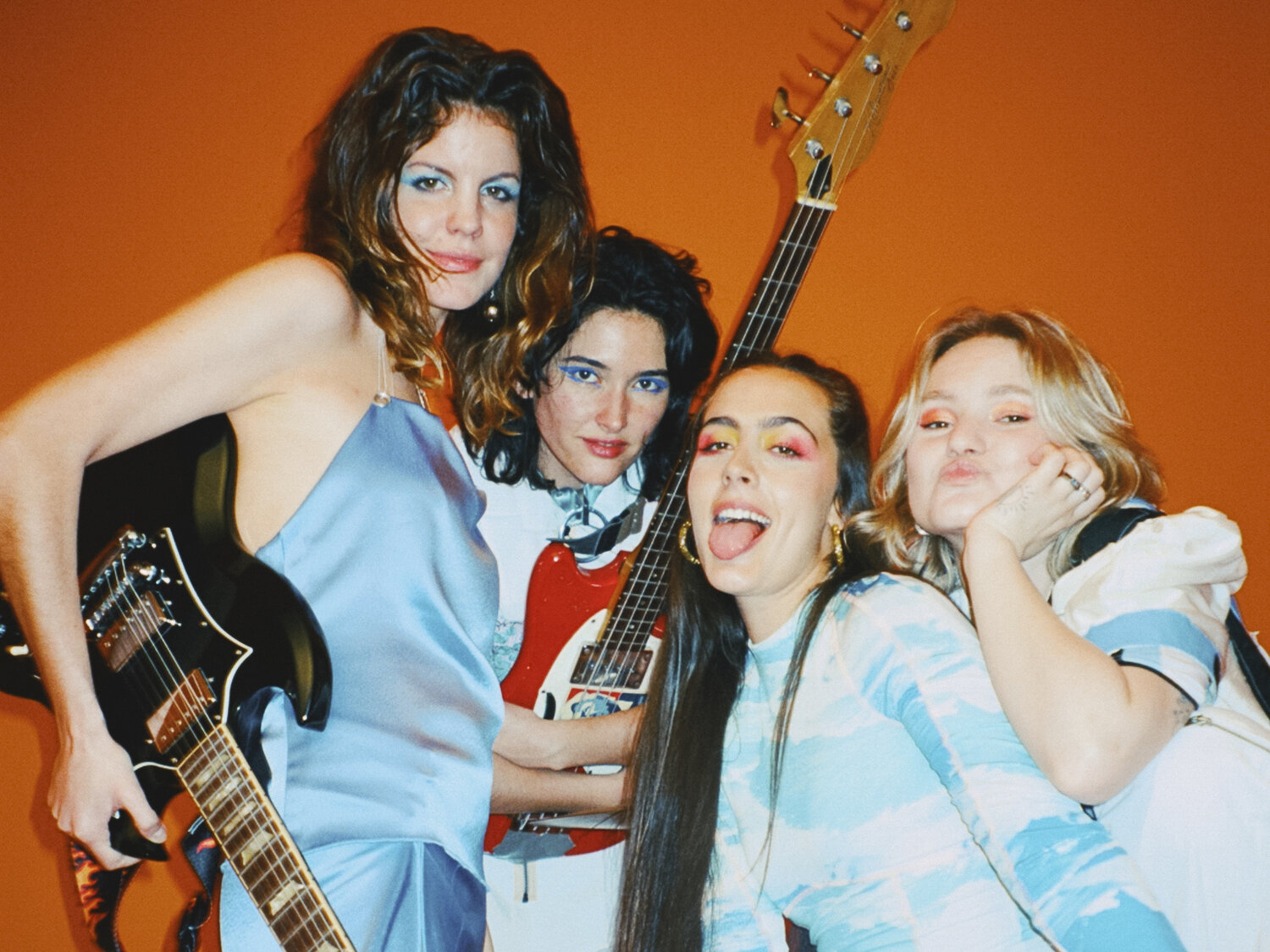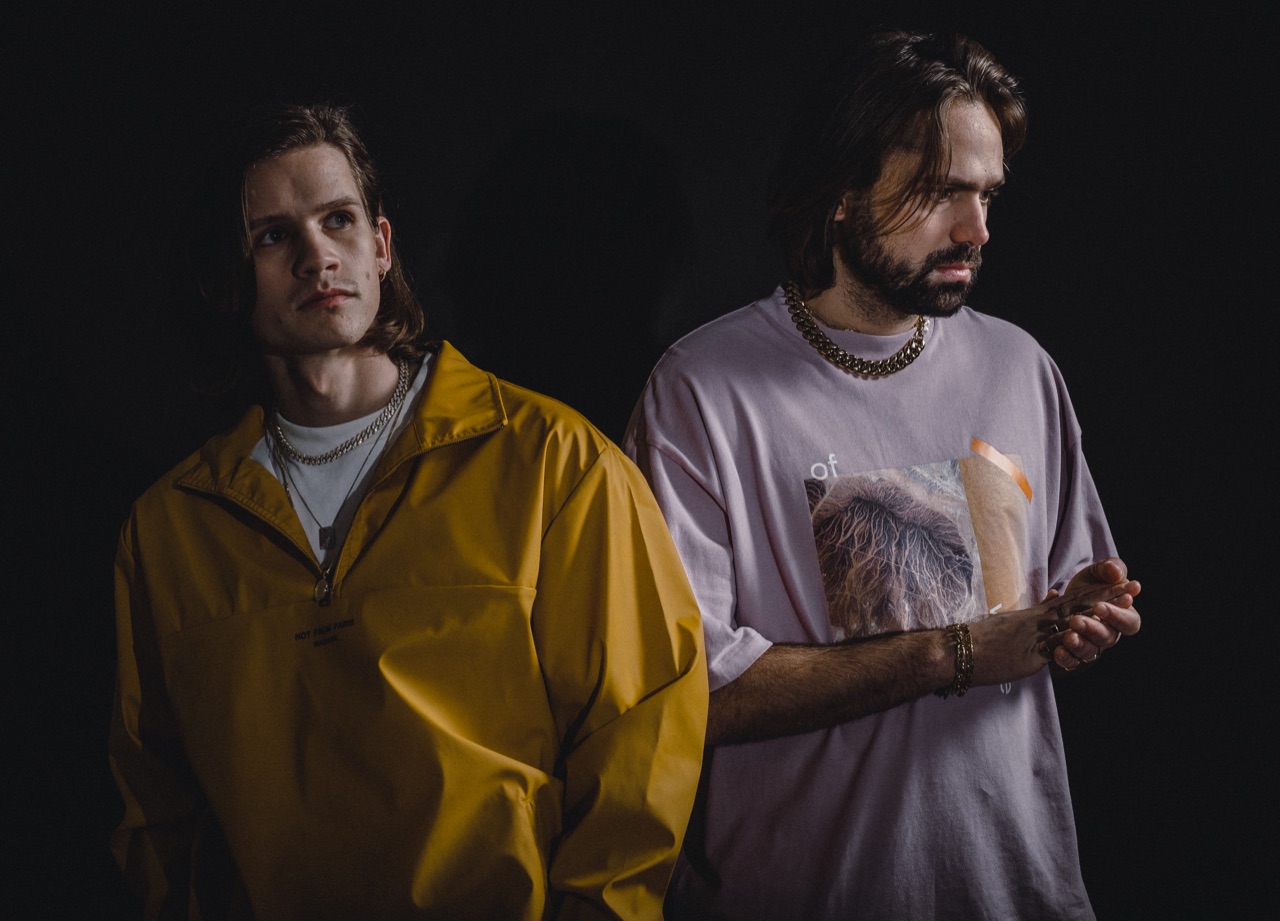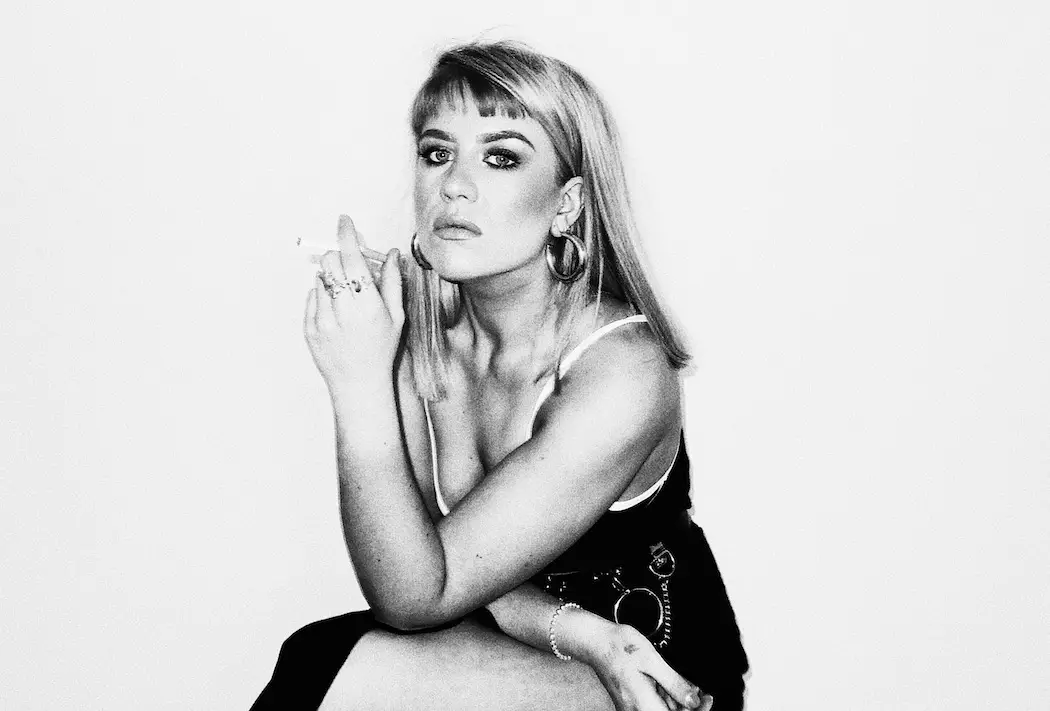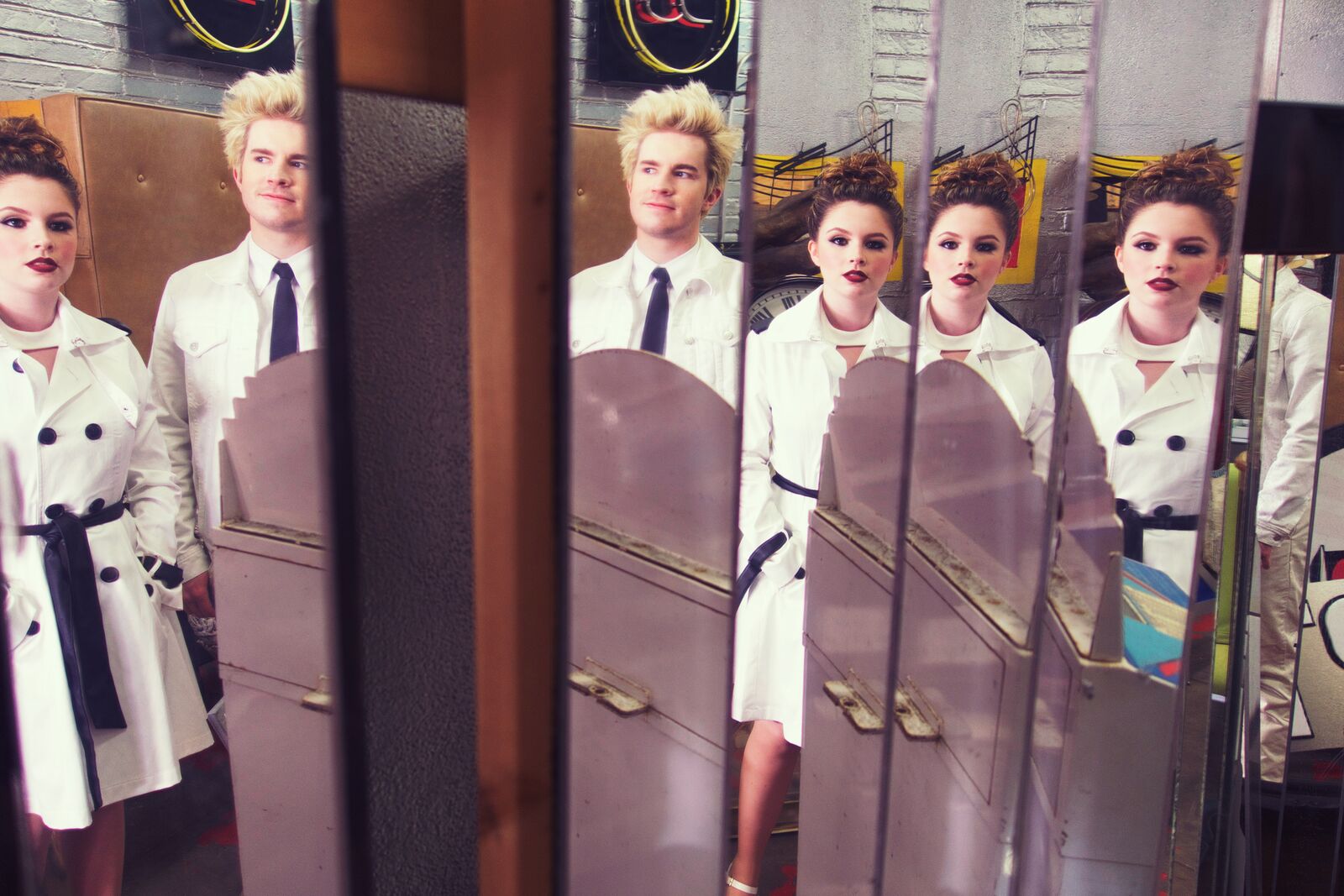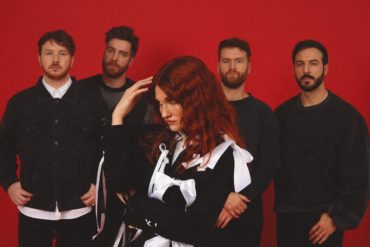With 16 members, Tredici Bacci is an avant-garde group with aspirations as big as their band. Composer Simon Hanes and vocalist Sami Stevens dive into the inspirations behind their third album, ‘La Fine Del Futuro’.
— —
Tredici Bacci is unfettered personality and joy.
Every moment the exuberant music of this 16-piece avant-garde classical chamber orchestra inhabits your ears is like an explosion of dopamine that fires off every synapse of your brain.

These delicate, complex, and grandiose compositions are brought to fruition by the music of 1960s and ’70s Italian movie soundtracks — a niche that they re endlessly proud of. Their third studio album, La Fine Del Futuro (released March 8, 2019) is what composer Simon Hanes considers the third evolution of a band that he hopes will stay the same for the foreseeable future. “I see it as the closing statement and an opening statement of a new phase,” says Hanes. “It’s a a culmination of a lot of different things that the band has been exploring and I think this can stand as a strong statement about it”.
Atwood Magazine sat down with Hanes and lead vocalist on the record, Sami Stevens to talk about this intoxicating new installment of Tredici Bacci.
Stream: ‘La Fine Del Futuro’ – Tredici Bacci
A CONVERSATION WITH TREDICI BACCI
Atwood Magazine: Can you tell me a little bit about your background, how the project got started and how it got to be where it is now?
Simon: Sami and I know each other because we went to school together at the New England Conservatory of Music. I started the band in 2013 because I was getting really obsessed with Italian film soundtracks from like the 60s and 70s. At some point I made a little weird demo and everyone said, “Oh that actually sounds kind of interesting, you should do it”. So I got 14 of my closest musical compatriots to be in this band and show the results at my graduation recital. Wrote this album-ish worth of music and this guy basically offered to pay for us to record it so we had to really fast record it. We went into the studio that week and recorded it and basically it seemed like it was musically rewarding enough that people were into continuing to do it.
Sami: It was awesome and everyone was so into it that we were obviously gonna be a band.
Simon: We kept working and getting inspired to write music for the band and then we all started moving to New York, and we made another record. So now we live in New York and are living crazy musical lives, and once a month or so we get together and play a show and rehearse and hang out. My background: I was in a lot of angry music bands but I was also trying to be a contemporary classical music composer and just general whacky fellow.
Sami: I studied jazz in school.
Simon: and then there’s 16 more of us.
Has it continued to be generally the same people or do the members come in and out?
Simon: It’s gone through a lot of changes, and actually Sami is one of the 3 people who has been in the band from the beginning. There was the Boston era where most of us lived in Boston. Then there was like a round two where there was a much smaller core group, like 9 or 10 people, an now we’re in the 3rd stage which is the record we just made. There are probably about 15 people on stage at every show and we’re trying to keep it that way as much as possible.
When you have musicians who are super invested and memorizing super hard stuff it brings the musicianship and communication up to a higher level. I have all these plans, some of them are nefarious some of them are pure.
Do you think living and performing in New York City has had an effect on your art?
Simon: Personally, I think being in New York has had a huge affect on [my work]. Just generally being able to experience tons and tons of different music all the time and trying to internalize those things as a composer. If I find myself all of a sudden getting obsessed with weird sculptures that make sound I try to be like, “Okay, how do I let this affect my work.” Or even just going to some crazy museum and seeing some insane paintings and being like “Oh! These colors! My music!” In terms of artistic and musical culture, there is such a high standard and in order to meet that you have to really make sure to push yourself and put a great deal of effort and energy into making really strong work.
Sami: New York is just really intense and there’s nothing worse than being mediocre in New York because you know it immediately. No one’s humoring you here. No one’s like, “Oh, that’s nice they’re trying, that’s good”. Everyone is on all the time. It’s very intense. So it’s very inspiring and also motivating to put your best possible work out there at all times. It feels like a waste to do something that’s only good.
How do you strike a balance between honoring your influences of the past and bringing in new elements that ground your music in the present?
Simon: Your compositional voice is always going to somehow shine through. For me, the thing to make sure that I’m always doing is being true to that. These days everything is pretty much semi referential to a certain degree. Every time I hear new music it’s always making reference to a different kind of music. I found that no one really makes reference to this particular kind of music anymore. They are either copying it or they are a big band that covers the actual songs from that period but there’s no one who really does it in the same way that Tredici Bacci does it. There’s a certain level of freedom in terms of the universe we define.
Sami: the era of music requires a certain stylistic understanding that comes from being intrenched in music and spending a lot of time just listening to it and understanding the vocabulary it uses which I think generally would be something that someone who’s really into nostalgia would do. Someone who’s like “ooh I love that era, I love that fashion, I love like this fun nostalgic idea”. Versus the kind of composer who would actually be able to execute the music. it’s a really special combination of a composer who is capable of executing these really complex beautiful dynamic arrangements for a large ensemble consistently and a real appreciation for the understanding of the pitch of the era. I think it’s a rare combination. I think that’s what Simon has.
Simon: The rules about what you can do with music are completely screwed right now and having the ability to take advantage of that is actually a huge tool to have. If you know not to take anything for granted you can sort of play with musical expectations. For me it’s about breaking any possible expectations of what could be happening at any moment and also simultaneously showing listeners that sort of the boundaries we draw between different kinds of music are pretty thin and not really necessary. There’s no such thing as fronting when tredicci Bacci is on stage because what we’re doing is so based on creating beautiful music and enjoying it.
Sami: it is really about joy.

How important are the visuals (music videos, live performances, etc.) to you in representing yourself to your audience in the way you want to be represented?
Simon: Well, we never made music videos until last month basically. The main references that we’re making are very tied to a certain aesthetic style which is that kind of like 70s Italian slasher movies, or crime movies, or sexy comedies combined with more of a 60s American pop music thing.
Sami: Well, the obvious thing is that we’re making music that’s inspired by film so there’s such a rich depth and decades of these films that are just ready to be referenced and torn apart and put back together, and mish-mashed and played upon in any way that we see fit.
Simon: You should just know that in my computer I have a folder of just anything you can think of like screen grabs from old Italian movies, and Japanese monster films, and weird samurai movies, and bad French pornography form the early 80s. I try to just let all this stuff seep into my brain for when I find opportunities for it. The album cover is a reference to a pulp novel from the 70s that I found in a book store in Bologna two years ago. I’ve been carrying around with me for 2 years and waiting for the opportunity to use it and that opportunity arose. I have so many things like that it’s almost ruining my life. I’m little hoarder-y.
In terms of live performances there’s no rules about what people wear or those kinds of things because when you start doing that it can feel limiting.
Sami: It can feel somehow a little less personal than we are. We are a very personal band.
How does this new record stack up with your previous work in your mind?
Sami: It’s the best thing ever. We are so proud of it.
Simon: We’re very very fucking proud of it. It’s the closing statement and an opening statement of a new phase because it’s a culmination of a lot of different things that the band has been exploring. This album says everything that I want it to say. It investigates all the things i’m interested in music and it feels very true to what Tredici Bacci has always been and it took a lot of sculpting. I’ve grown, I’ve learned a lot of lessons, I still learned a lot of lessons this time too but those are new lessons. It really is a culmination of a lot of things.
So what’s next for Tredici Bacci?
Sami: WORLD TOUR!!
Simon: WORLD TOUR!! I think we might be becoming really popular in Poland?
Sami: Is that real?
Simon: This publication in Poland wrote about it and it seems like a pretty far reaching publication.
So yeah, a world tour is definitely in order.
Sami: Yeah – a world tour just to Poland.
Simon: There’s definitely a lot to think about in terms of traveling because we haven’t really figured out a way to take this band out of the east coast.
Sami: We’re overdue on a trip to Italy and France obviously.
Simon: In terms of musical stuff like I feel like I am starting to be interested in much more abstract ideas in this music because we’ve gotten to this point where— in terms of communication as a band it doesn’t take much for us to take an idea and make it sound really strong. Now is an opportunity for me to try to push us musically and be abstract and investigate different avenues.
Sami: Explore the boundaries of musicianship
Simon: As a band, once you define a style for yourself I feel like people try to hold you to that and put you into a little bit of a box. Tredicci Bacci has been around for 6 years and for 6 years we have been the Italian soundtrack pop chamber orchestra. Now that we’ve really cemented ourselves as that, it’s the perfect time to completely break down that expectation and do something totally different. Everyone in Tredicci Bacci has such a wide range of talent. I know I can throw anything at them and they’ll be able to pretty much master it with little to no abrasion. For me, moving forward it’s all about that. It’s all about finding new ways that we can express new ideas and really branch out.
Tredici Bacci is…
Joanna Mattrey: https://www.
Sami Stevens: https://www.
Will Green: https://dressage1.
Abby Swidler: http://
Tree Palmedo: http://treepalmedo.
Jesse Heasly: https://kateboard.
Peter Moffett: https://www.youtube.
Lucy Hollier: https://soundcloud.
Leia Slosberg: https://berrowduo.
Daniel Pencer: http://danielpencer.
Ludovica Burtone: http://
Abigale Reisman: https://www.
Dylan Mckinstry: http://www.
Borey Shin: https://boreyshin.
Evan Allen: https://www.facebook.
— —
:: stream/purchase La Fine Del Futuro here ::
— — — —

Connect to Tredici Bacci on
Facebook, Twitter, Bandcamp, Insta
Discover new music on Atwood Magazine
? © Walter Wlodarczyk art by phyllis ma



